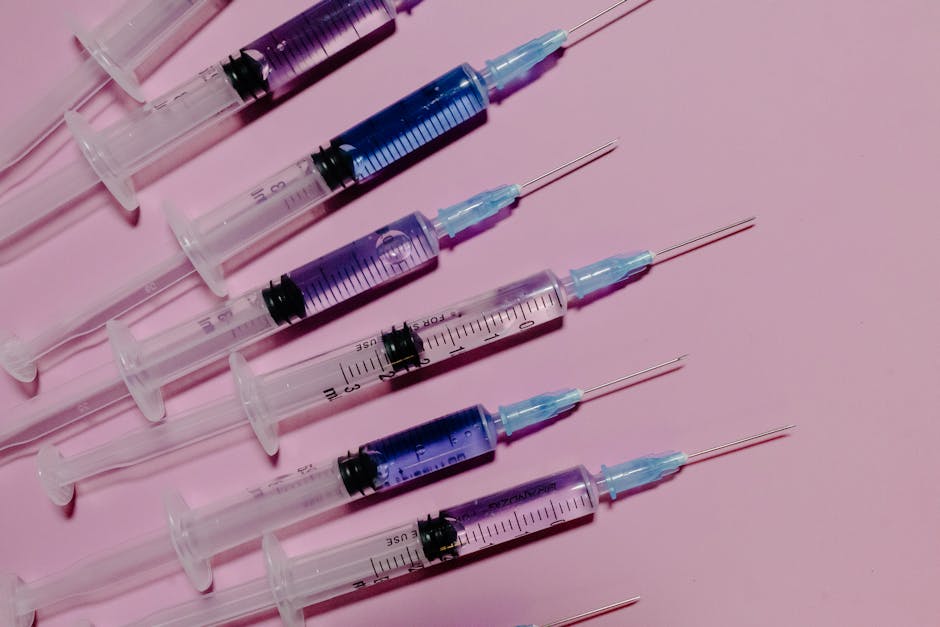Gilead's HIV Prophylaxis Solutions: Advanced Prevention Strategies
When it comes to addressing public health challenges, HIV prevention stands as one of the most critical areas requiring innovation and dedication. For decades, researchers and pharmaceutical companies have worked tirelessly to bring effective solutions to the forefront. Among these is Gilead Sciences, a company that has established itself as a key player in HIV prevention through its groundbreaking prophylaxis solutions.

These advancements not only reduce the risk of infection but also empower individuals to take control of their health with confidence.
The Science Behind HIV Prophylaxis
HIV prophylaxis, or preventive treatment, can be divided into two main categories: pre-exposure prophylaxis (PrEP) and post-exposure prophylaxis (PEP). PrEP is a daily medication regimen taken by individuals who are at higher risk of contracting HIV, while PEP is an emergency treatment taken within 72 hours after potential exposure. Both strategies aim to block the virus from establishing an infection within the body.
Gilead’s PrEP solution, Truvada, was one of the first medications approved for this purpose. It combines two antiretroviral drugs (tenofovir disoproxil fumarate and emtricitabine) to inhibit the replication of HIV in cells. More recently, Gilead introduced Descovy, a newer PrEP option with a modified formulation aimed at reducing side effects, particularly bone and kidney concerns often associated with earlier treatments. This innovation has provided an alternative for those who may not tolerate Truvada well.
PEP, while less commonly discussed, plays an equally vital role in HIV prevention. Gilead’s antiretroviral medications are frequently part of PEP regimens prescribed after potential exposure through sexual contact or needle-sharing. The idea is simple yet powerful: act swiftly and interrupt the virus before it gains a foothold.
Why Prevention Matters
Prevention isn’t just about protecting individuals; it’s about reducing HIV transmission rates on a larger scale. Consider this: according to data from UNAIDS, there were approximately 1.5 million new HIV infections globally in 2021 alone (UNAIDS). While treatment advancements have transformed HIV into a manageable chronic condition for many, preventing new cases remains pivotal in combating the epidemic altogether.
PrEP programs have demonstrated remarkable success in this regard. Studies published in journals like The Lancet have shown that consistent PrEP use reduces the risk of HIV transmission by up to 99% in individuals at high risk (The Lancet). It’s akin to wearing a seatbelt, no one plans for an accident, but taking precautions significantly minimizes harm if something unexpected occurs.
Sex workers, men who have sex with men (MSM), and people with partners living with HIV often face elevated risks of exposure. PrEP provides them with an added layer of protection while promoting peace of mind in their daily lives. When combined with regular testing and other preventive measures like condom use, it creates a comprehensive strategy for staying safe.
Addressing Barriers to Access
Despite its effectiveness, barriers to accessing PrEP and PEP remain a challenge in many communities. Cost is often cited as a significant obstacle. Although programs like Medicaid and certain insurance plans cover these medications in many regions, out-of-pocket costs can still deter individuals from seeking care. Recognizing this issue, Gilead launched initiatives such as the Advancing Access program to provide financial assistance and ensure that cost does not become a roadblock.
Another hurdle is awareness, or rather, the lack thereof. Many people who could benefit from PrEP don’t even know it exists. A 2020 study published in JAMA Network Open highlighted that only about 25% of individuals at high risk for HIV in the United States reported using PrEP (JAMA Network Open). Educational campaigns and outreach efforts are essential for bridging this gap and normalizing conversations around HIV prevention.
Cultural stigma also plays a role in limiting access. In some communities, discussing sexual health openly can feel taboo, making it difficult for individuals to seek out resources or even inquire about PrEP with their healthcare providers. Addressing stigma requires sensitivity and collaboration among advocacy groups, medical professionals, and policymakers to create environments where people feel safe seeking help.
The Role of Long-Acting Solutions
Daily pills have been life-changing for many individuals, but not everyone finds adherence easy. Whether it’s due to busy schedules or personal preferences, remembering to take medication every single day can be challenging. This is where long-acting options come into play, a newer frontier in HIV prophylaxis that Gilead is exploring alongside other pharmaceutical companies.
Imagine receiving an injection every few months instead of relying on daily tablets. Long-acting injectables like cabotegravir (developed by ViiV Healthcare) have already been approved for use as PrEP in certain regions (ViiV Healthcare). While Gilead doesn’t yet have an injectable option on the market specifically for PrEP, ongoing research into extended-release formulations suggests that such innovations could soon become part of its portfolio.
This shift toward long-acting treatments could significantly improve adherence rates among users who struggle with daily regimens. It may offer more discreet options for those concerned about privacy, after all, no one needs to know you’re receiving preventive care during your routine doctor visits.
The Path Ahead
Gilead’s contributions to HIV prevention reflect a commitment not just to science but also to the people whose lives depend on these advancements. From pioneering oral PrEP medications like Truvada and Descovy to exploring future possibilities like long-acting injectables, the company has continuously pushed boundaries to make prevention more accessible and effective.
The fight against HIV is far from over; new infections continue each year despite significant progress since antiretrovirals were first introduced decades ago. But thanks to companies like Gilead (and equally important efforts from activists, healthcare providers, and policymakers) we’re closer than ever before to controlling this epidemic sustainably.
Preventing HIV isn’t just about science or medicine; it’s about empowering individuals with tools that fit their unique circumstances while fostering communities where everyone feels supported in making informed choices about their health.
